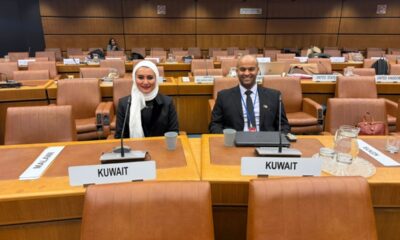KUWAIT CITY, July 16: The Ministry of Commerce and Industry issued 9,881 new company licenses through its Single Window Administration in the first quarter of 2025, marking a 9.4% year-on-year increase from 9,029 licenses during the same period in 2024. The growth of 852 new licenses reflects the Ministry’s continued efforts to streamline business registration and reduce bureaucratic hurdles.
A total of 5,940 companies were established during the quarter. This surge is attributed to a series of administrative reforms implemented by the Ministry aimed at simplifying licensing procedures, minimizing regulatory steps, and eliminating redundancies in the process of setting up and managing businesses.
According to official data, commercial licensing activity saw a significant boost across multiple categories. Company licenses rose 21.3% to 8,390 from 6,919 in Q1 2024, while applications under processing increased to 514.
In the segment of personal company formation, the Ministry received 14,000 applications. Of these, 8,287 were rejected, 705 were approved, 641 were canceled, and 4,526 companies were successfully established. An additional 705 are in the process of being established.
Conversely, licensing activity for special-purpose companies recorded a sharp decline. Only 38 licenses were issued in the first quarter of 2025—a 97% drop compared to 1,660 licenses issued in the same quarter last year. Despite the decline, the Ministry processed 56 applications, resulting in the establishment of nine companies, with six licenses currently in issuance.
Freelance Sector Sees Major Expansion
The freelance and micro-enterprise segment experienced robust growth, fueled by regulatory changes introduced in August 2024. The Ministry reported a 227.25% surge in new licenses for micro and freelance enterprises, rising to 1,453 from 1,000 in Q1 2024. Currently, 42 licenses are in the process of being issued.
Of the 1,649 freelance business license applications submitted, 1,449 were rejected, 705 were approved, and 1,405 companies were established. A further 114 are in the process of formation. This growth reflects the Ministry’s move to support independent professionals and small-scale entrepreneurs through simplified licensing for 175 defined activities that do not require commercial premises.
Licenses in this category, valid for four years, can be obtained via the Single Window Administration, the “Sahel” or “Sahel Business” mobile platforms, or other approved channels.
The Ministry also mandated that all freelance license holders clearly display their license number on their business accounts across electronic and social platforms, and conduct all transactions exclusively through electronic payment methods.

 Latest News23 hours ago
Latest News23 hours ago
 Politics16 hours ago
Politics16 hours ago
 Latest News17 hours ago
Latest News17 hours ago
 Latest News15 hours ago
Latest News15 hours ago
 Politics7 hours ago
Politics7 hours ago
 Business7 hours ago
Business7 hours ago
 Latest News7 hours ago
Latest News7 hours ago
 Politics6 hours ago
Politics6 hours ago















